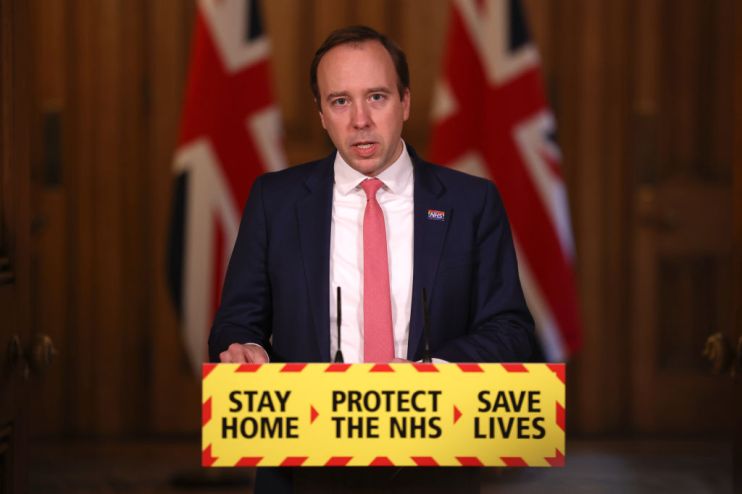Matt Hancock wanted to decide who ‘lived and died’ if NHS overwhelmed, Covid inquiry told

Matt Hancock wanted to decide “who should live and who should die” if NHS hospitals were overwhelmed during the pandemic, the UK’s official Covid-19 inquiry has been told.
Former NHS boss Lord Simon Stevens appeared before the inquiry this morning to give evidence on his role running the health service during the Covid-19 crisis.
Part of his witness statement, read aloud by the inquiry lawyer, stated: “The secretary of state for health and social care took the position that in this situation he – rather than, say, the medical profession or the public – should ultimately decide who should live and who should die.
“Fortunately this horrible dilemma never crystallised.”
Asked to comment further, Lord Stevens added: “I certainly wanted to discourage the idea that an individual secretary of state, other than in the most exceptional circumstances, should be deciding how care would be provided.
“I felt that we are well served by the medical profession, in consultation with patients to the greatest extent possible, in making those kinds of decisions.”
He said the NHS created an “ethical moral advisory panel” to suggest, if “absolute disaster” had struck how care could be rationed in the fairest possible way.
A spokesperson for Hancock said: “Mr Hancock has supported the inquiry throughout and will respond to all questions when he gives his evidence.”
During his appearance, which followed former chief adviser Dominic Cummings, then-communications chief Lee Cain, and ex-deputy cabinet secretary Helen MacNamara earlier this week, Lord Stevens, who led NHS England until 2021, largely declined to criticise the former health secretary.
“There were occasional moments of tension and flashpoints, which are probably inevitable during the course of a 15-month pandemic but I was brought up always to look to the best in people,” he said.
On the question of whether Hancock lied, Lord Stevens said: “Strong accusations need strong evidence to back that up, and I don’t think I’ve seen that evidence.”
Under questioning from inquiry counsel Andrew O’Connor he said that “for the most part, yes” he could trust Hancock.
However, he also told the inquiry that senior ministers “sometimes avoided” Cobra meetings in the early days of the pandemic chaired by Hancock.
Asked if that was a reflection on the then-health secretary, Lord Stevens said: “I am not saying that was cause and effect, but that was the fact of the matter. I just observed that those two coincided.”
